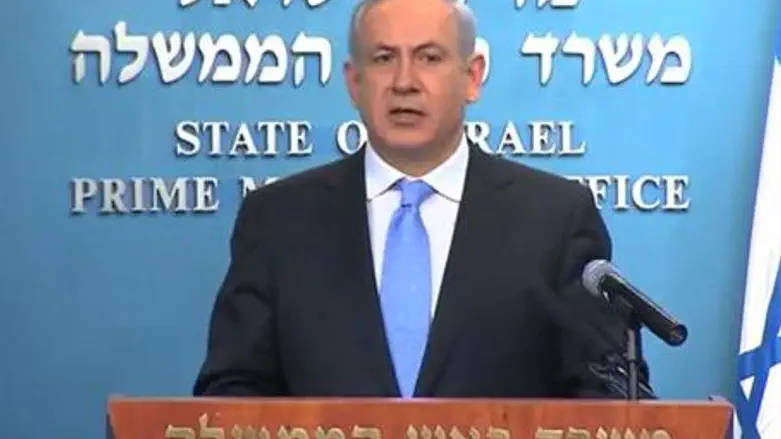
Prime Minister Binyamin Netanyahu warned Wednesday in an address to the Knesset that a regime change in Egypt could be the harbinger for a new gateway to Iran.
In the wake of an announcement by President Hosni Mubarak that after a 30-year reign, he will step down at the end of his term, Netanyahu noted that the world was abuzz with talk of the "opportunities" that such a move could bring.
"They spoke about the promise of a new day," the prime minister commented. "These hopes are understandable. All those who cherish human liberty, including the people of Israel, are inspired by genuine calls for reform and by the possibility that it will take place."
The hope for democracy and a gradual stable peace process in Israel's southern neighbor, said Netanyahu, "unites us all." However, he added, "this is not the only possible scenario. Because far away... is another capital in which there are hopes" as well, he said pointedly.
"In this capital, there are leaders who can also see the opportunities that change in Egypt could bring... But for people in this capital, the promise of a new day is not in its dawn but in the darkness it can bring. That capital is Tehran and I assure you, that the leaders in Iran are not interested in the genuine desires of Egyptians for freedom, liberalization or reform, any more than they were interested in answering similar calls for freedom by the Iranian people, their own people, only 18 months ago."
Netanyahu charged that Iran is looking forward to Egypt becoming "another Gaza, run by radical forces that oppose everything that the democratic world stands for."
The question, he said, is which world view will prevail -- that of freedom, progress and peace, or despotism, terrorism and war?
The prime minister predicted that it would be "a long while" before one of the forces achieves victory, and said there may yet be "many years of instability."
He warned that recent history has shown many cases in which "extreme Islamist elements abused the rules of the democratic game to gain power and impose anti-democratic regimes. It happened in Iran; it happened in Lebanon; and it happened when the Hamas took over the Gaza Strip."
Netanyahu called on Knesset members to "ensure that this does not happen again," and to "do everything in our power to ensure that peace triumphs."
'We Can Only Try' for Peace with PA
As far as a settlement with the Palestinian Authority, the prime minister pointed out that many efforts, past and present, have been made towards trying to establish and re-establish talks with PA Chairman Mahmoud Abbas.
"There are many skeptics out there," he noted. "They say Israeli governments and their maximalist positions on concessions do not coincide with the minimalist positions of the Palestinians. It is possible, they say, that the gap between Israel and the Palestinians may be too wide to bridge. They might be right," he added.
"But if we do not try, we will surely not succeed. And we cannot try until we sit down, and we cannot sit down if they do not want to."
The bottom line, said Netanyahu, is that Israel must maintain its security by striving for "a stable peace." He added that the country must above all maintain "watchful eyes that recognize reality."